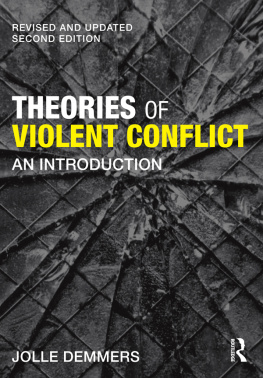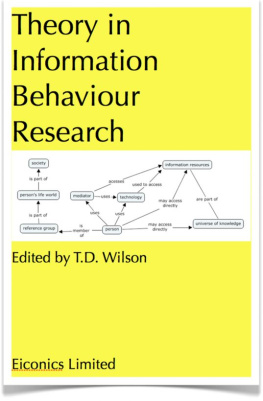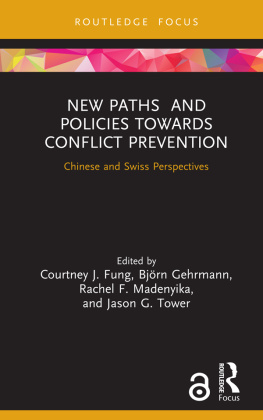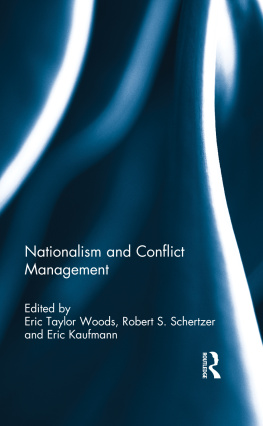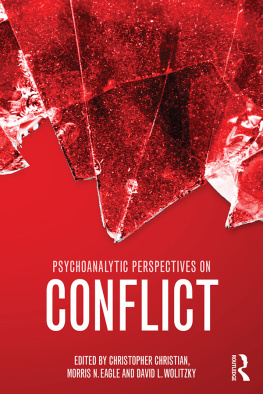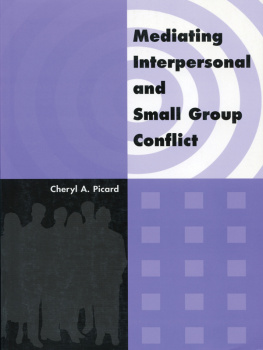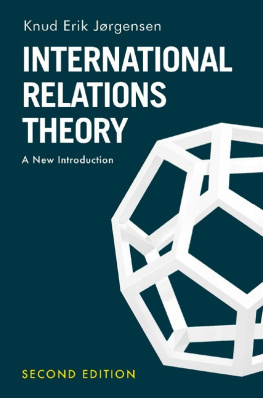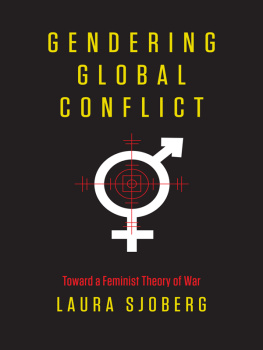Theories of Violent Conflict
This revised and updated second edition introduces students of violent conflict to a variety of prominent theoretical approaches, and examines the ontological stances and epistemo- logical traditions underlying these approaches.
Theories of Violent Conflict takes the centrality of the group as an actor in contemporary conflict as a point of departure, leaving us with three main questions:
- What makes a group?
- Why and how does a group resort to violence?
- Why and how do or dont they stop?
The book examines and compares the ways by which these questions are addressed from a number of perspectives: primordialism/constructivism, social identity theory, critical political economy, human needs theory, relative deprivation theory, collective action theory and rational choice theory. The final chapter aims to synthesize structure and agency-based theories by proposing a critical discourse analysis of violent conflict.
With new material on violence, religion, extremism and military urbanism, this book will be essential reading for students of war and conflict studies, peace studies, conflict analysis and conflict resolution, and ethnic conflict, as well as security studies and IR in general.
Jolle Demmers is Associate Professor and Co-Founder of the Centre for Conflict Studies, Utrecht University, the Netherlands.
This book is a masterly effort to navigate us through the multiple ways of thinking about armed conflicts and violence. Amongst its many achievements, are precisely the one which urges us to recognize the implicit assumptions we bring to bear when analyzing these dark aspects of our human communities and how we might build better conversations between theories of conflict in order to re-invigorate our thinking and practice of violence reduction and peace building.
Jenny Pearce, University of Bradford, UK
Demmers brings unique explanatory powers to theories of violence; capturing and inter- rogating their development, meanings and applications in a conflicted global environment. Cogent, comprehensive and compelling, this is a book for our times.
Judith Large, University of Kent, UK
This updated Demmers text provides a very helpful and accessible framework for understanding the variety, subtlety and breadth of theories of violent conflict and their interconnectedness. This version captures emerging theories and provides updated case studies for a fresh perspective.
Gloria Rhodes, Emory University, USA
Demmers makes a topic that many students struggle with (theory) accessible through clear and concise writing and the use of the Hollis matrix to identify the philosophical assumptions that distinguish theories from each other.
Maia Carter Hallward, Kennesaw University, USA
Praise for the first edition:
Theories of Violent Conflict is a delight to read. It has a depth and intellectual passion that students will find very attractive. It is both approachable and straightforward, and yet penetrating and theoretically rich.
Hugh Miall, University of Kent, UK
Jolle Demmers has produced a timely, comprehensive and richly interwoven account of the main theories underpinning our understanding of conflict and chronic insecurity. Lucidly written and explained, from identity through culture and global governance, to rational choice and discourse analysis, Demmers effortlessly brings order and insight to an otherwise fragmented field. Widely referenced and clearly structured, Theories of Violent Conflict is an essential and authoritative guide for students, academics and concerned public alike.
Mark Duffield, University of Bristol, UK
Theories of Violent Conflict is a book of remarkable scope that will prove invaluable to academia, government and policy circles, and practitioners of conflict resolution and peace-building... Demmers deftly and insightfully guides the reader through a rigorous journey of comparative analysis, elucidating the theoretical underpinnings and practical implications of the major approaches that seek to explain contemporary world conflicts.
Jerry W. Sanders, University of California, Berkeley, USA
First published 2017
by Routledge
2 Park Square, Milton Park, Abingdon, Oxon OX14 4RN
and by Routledge
711 Third Avenue, New York, NY 10017
Routledge is an imprint of the Taylor & Francis Group, an informa business
2017 Jolle Demmers
The right of Jolle Demmers to be identified as author of this work has been asserted by her in accordance with sections 77 and 78 of the Copyright, Designs and Patents Act 1988.
All rights reserved. No part of this book may be reprinted or reproduced or utilised in any form or by any electronic, mechanical, or other means, now known or hereafter invented, including photocopying and recording, or in any information storage or retrieval system, without permission in writing from the publishers.
Trademark notice: Product or corporate names may be trademarks or registered trademarks, and are used only for identification and explanation without intent to infringe.
British Library Cataloguing-in-Publication Data
A catalogue record for this book is available from the British Library
Library of Congress Cataloging-in-Publication Data
Names: Demmers, Jolle, 1969 author.
Title: Theories of violent conflict : an introduction / Jolle Demmers.
Description: Second edition. | Milton Park, Abingdon, Oxon ; New York,
NY : Routledge, 2017. | Includes bibliographical references and index.
Identifiers: LCCN 2016006777 | ISBN 9781138856394 (hardback) |
ISBN 9781138856400 (pbk.) | ISBN 9781315715025 (ebook)
Subjects: LCSH: War (Philosophy) | Political violenceSocial aspects.
Classification: LCC JZ6390 .D46 2017 | DDC 303.6dc23
LC record available at http://lccn.loc.gov/2016006777
ISBN: 978-1-138-85639-4 (hbk)
ISBN: 978-1-138-85640-0 (pbk)
ISBN: 978-1-315-71502-5 (ebk)
Typeset in Times
by Keystroke, Station Road, Codsall, Wolverhampton
When I was completing the second edition of this book in December 2015, two Somali nomads announced on a Dutch news website that they were planning to take legal action against the Netherlands. While herding their cattle south of Mogadishu, the two men had fallen victim to a drone attack. They were hit by an American missile that was aiming to target a convoy of cars allegedly transporting members of the Al Shabaab organization. One nomad lost both his daughters, was severely injured himself and saw most of his cattle annihilated. The two men hold the Dutch state accountable for the American drone attack. Over the past years, the Dutch military intelligence agency (MIVD) has intercepted millions of telephone calls and texts messages by Somalis by means of a satellite receiver stationed in the small Frisian village of Burum. The mobile phone meta-data (collected for an anti-piracy operation named Ocean Shield) was shared with the American NSA, and allegedly used to plan the drone attack. According to the Dutch lawyer representing the victims, these actions are culpably negligent. By providing telecom data to the NSA, the Netherlands is considered co-responsible for the attacks.
Violent conflict and warfare have become increasingly remote and interconnected at the same time, tying people and places together in unprecedented ways. In the four years separating this second edition with the publication of the first edition of Theories of Violent Conflict , it is the increasing interconnectedness of violence that strikes me as most significantly new. This adds to the ongoing challenge for students of violent conflict to unravel the complexity of the web of relations and alliances producing contemporary war and violence, and the ways clusters of conflict cross-infect and exacerbate each other. The multifacetedness of todays violent conflict calls for researchers who can draw on a multiplicity of analytical vocabularies. In this second edition, apart from case-study updates, I have included a number of new voices and directions. Among them are ideas on assemblage analytics, new sections on the conceptualization of violence (and how it differs from aggression), religion and extremism, and more explicit references to gender, post-colonial studies and performance studies. Also, this second edition includes a more elaborate discussion of the critical political economy approach to violent conflict and addresses the spatial and practice turn in the field. Again, students in the MA Conflict Studies and Human Rights at Utrecht University were of invaluable help in thinking through the selected approaches, offering feedback and pointing out new directions. In many ways, this new edition is the product of our collaboration. Working at the Centre for Conflict Studies is fun and a privilege thanks to Chris van der Borgh, Mario Fumerton, Georg Frerks, Luuk Slooter, Lauren Gould, Nora Stel, Toon Dirkx, Niels Terpstra and Floor Zweerink. I am grateful to the Dutch Science Foundation (NWO) for providing me with a writing grant, which enabled me to write the first edition of the book. In addition, I am indebted to Andrew Humphrys and Hannah Ferguson from Routledge for their patience and professional support and to Routledges anonymous reviewers for their valuable suggestions. Sameer and Manu Mehendale were crucial supporters, first-readers and designers at the home front. I dedicate this book in loving memory to my academic mentor Alex E. Fernndez Jilberto.

